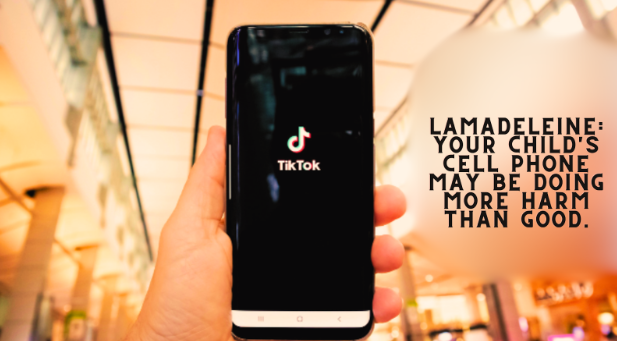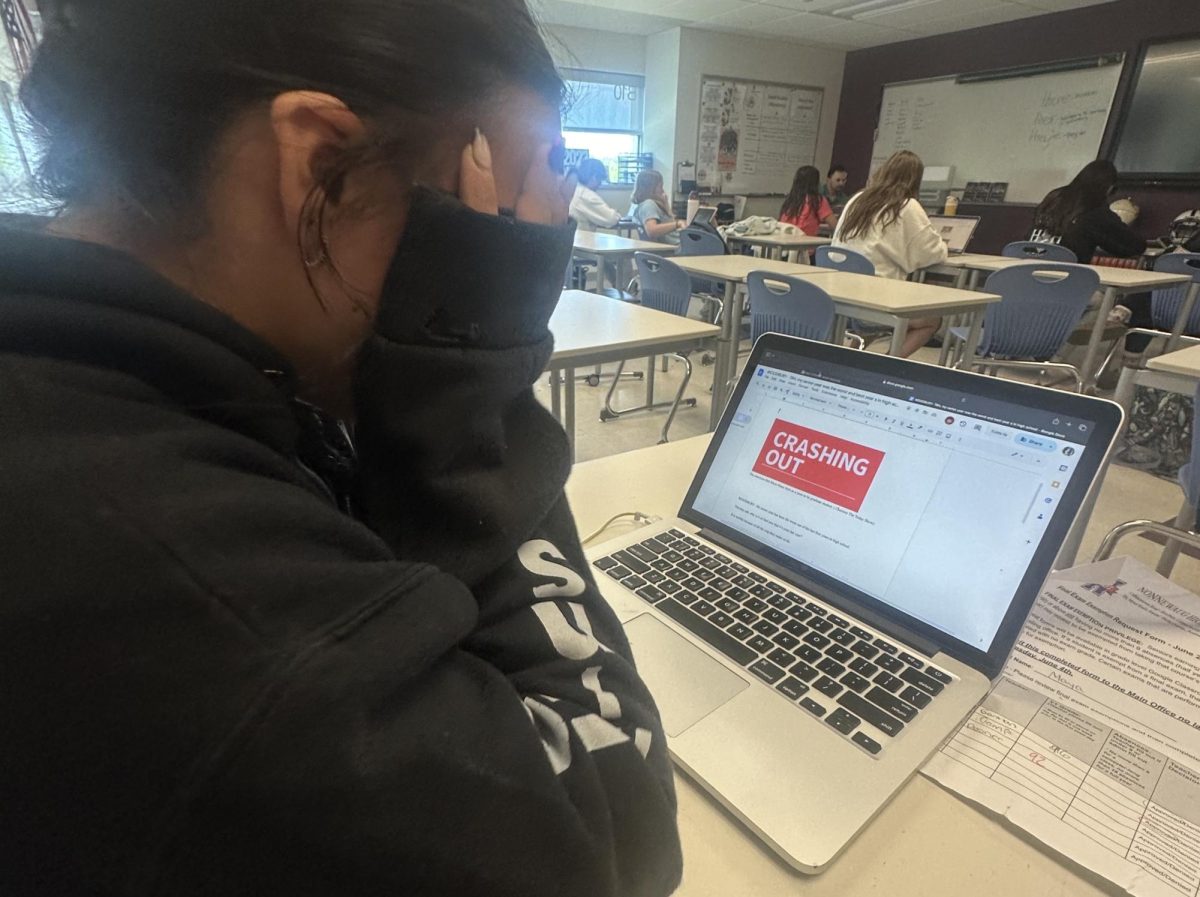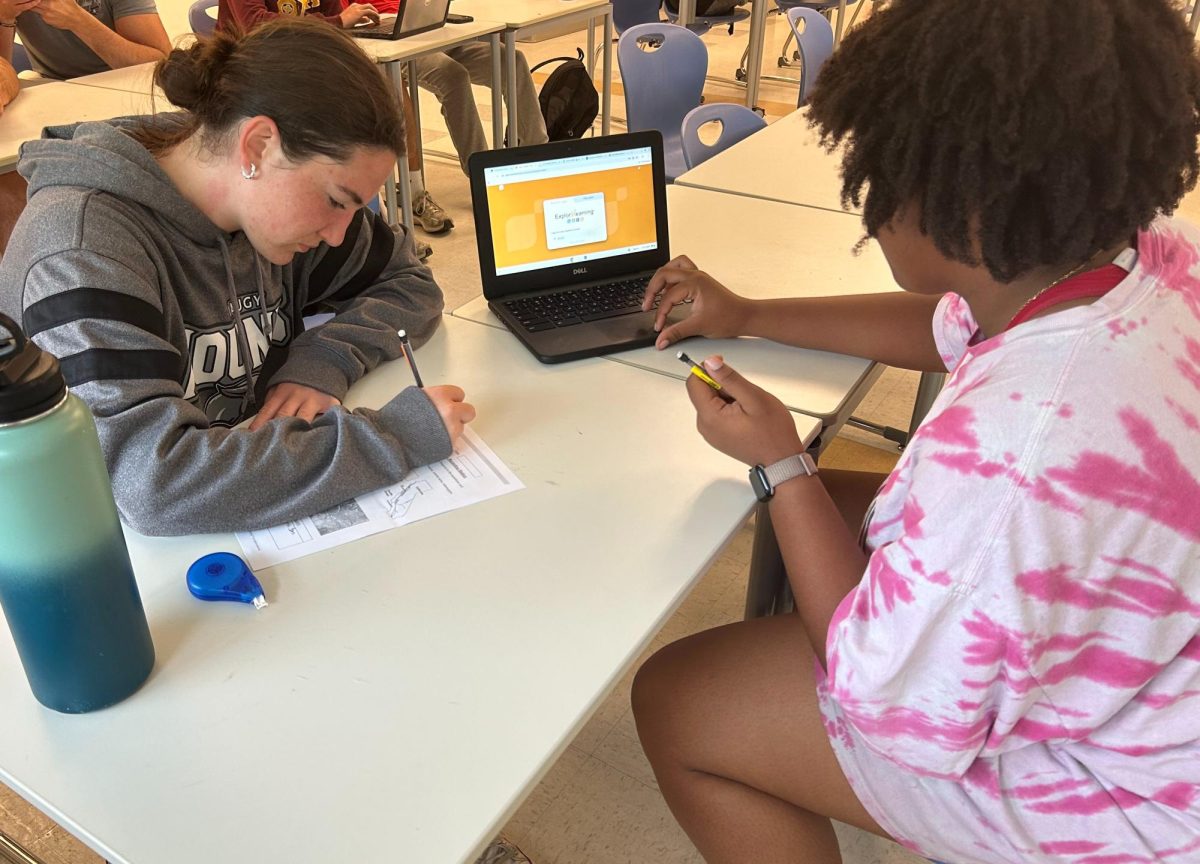WOODBURY — A common device of the modern era is a smartphone or tablet, something some toddlers, kids, and adults alike use in their everyday lives. Whether it be to service a need like calling a loved one, or scrolling through social media, these devices are always in someone’s hands.
But what if these devices are causing irreversible damage to users’ dopamine receptors? With the rise of apps like TikTok and the use of Instagram Reels, the short-form video format has blown up in recent years. However, with these shorter videos comes severe consequences for the human brain.
When we watch videos on our devices, like TikTok or Instagram Reels, our brains release dopamine, which makes us feel good. It’s like a reward for our brains. But when we get accustomed to this feeling, we keep wanting more.
So, we scroll and watch more videos to get that same good feeling.

The problem is there are other things in life that give us that dopamine that everyone’s brains crave, like doing well on a test or finishing a project. These things also release dopamine. But when we spend too much time on our devices, we miss out on those important activities and the long-term gratification that comes with completing long-term goals. It’s like our brains get stuck in a loop, always seeking that quick dopamine hit from scrolling through videos.
“It’s part of the endocrine system that is released out of the brain,” said Nonnewaug wellness instructor Dave Green. “It influences how we think and how we feel, and it can affect how you talk to someone in person compared to looking at that person on social media. Can someone express the emotions they felt on social media in person? If we keep going like this, it could mean we’re missing out on the things that really make life fulfilling.”
Cheap dopamine is used for people of all ages to escape internal and external struggles. That quick fix is what people would call a short-term distraction to escape a long-term problem. Instead of doing homework, kids get stuck in a feedback cycle of scrolling and can’t find that motivation from their cheap dopamine. Using these short-term distractions for long-term problems results in even bigger mental health issues.
“My son, who is now in his 20s, has expressed that looking at social media makes him feel like he isn’t good enough and has even started limiting himself due to this,” said Deborah Flaherty, NHS’ library media specialist.
Setting limits is a hard thing for parents when their kids have a better understanding of the devices parents are trying to regulate. It can make for some difficult situations for the parents. The solution wouldn’t be to take away the devices, but use the app-limit settings on your iPhone or the equivalent on your Android device. Additionally, experts advise that it would be helpful to have your child set goals for an activity in their life.
“People with low levels of dopamine tend to look first at the difficulty of the task rather than the reward they’ll receive for completing it,” says Mental Health America, a non-profit dedicated to raising awareness for mental health around the world.
Nonnewaug students share this same struggle in that too much exposure to social media can sap self-confidence as a result of such a dopamine overload.
“I feel unproductive when I find myself scrolling through the reels,” said Nonnewaug junior Lincoln Nichols.
Most people’s shortcomings when it comes to social media is their inability to control their habit to pick up their phone and start scrolling. While the ease of access of a device is useful in a plethora of situations, when not being used for the device’s useful purposes, it turns into a dopamine factory looking to deliver you your next hit.
There is no foolproof system to combat social media addiction, experts say. However, there are steps as parents that can be used to mitigate the effects of social media. Try not to give your child a device too early on in development, experts say.
“There was restricted phone use in my household,” Flaherty said. “They had to charge their phones in the kitchen. We did have a lot of conversations. I was on both of their accounts and we would talk about things we would see on social media, but there was stuff that I couldn’t always monitor and control.”
While experts have advised parental control, students at Nonnewaug are learning the delicate balance between tech fluency and the ever-vital social skills that are necessary for life after high school.
“Overall, the school does have a few preparations,” Green said regarding Nonnewaug’s role in educating students about the role technology should have in our lives. “We bring in guest speakers about tech. Also, teachers have the complex task of making lesson plans that both help a students’ individual and social skills with tasks like group projects.”
This piece is an opinion article written by senior reporter Jack LaMadeleine.

















